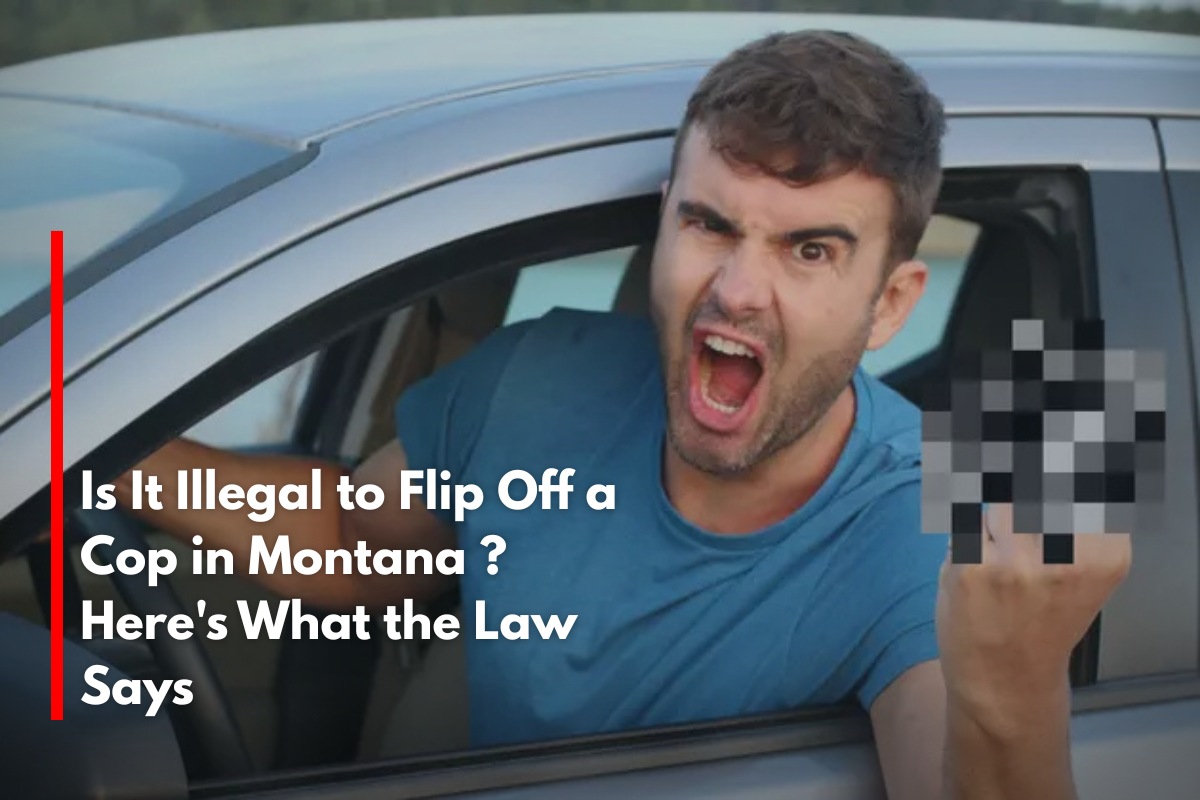The Right to Free Speech and Flipping Off Police
In Montana, as in the rest of the United States, flipping off a police officer—making an obscene gesture such as showing the middle finger—is generally protected under the First Amendment as free speech.
This means that simply giving a police officer “the finger” is not illegal and cannot by itself justify arrest or citation. Courts have ruled that such rude gestures are a form of expression and, while offensive to some, are protected from criminal punishment as long as they do not escalate into threatening or violent behavior.
When Can the Gesture Become Illegal?
Though the gesture itself is protected, context matters. If flipping off an officer crosses into disorderly conduct—such as causing a public disturbance, escalating tension into a fight, or obstructing an officer’s duties—it could result in charges. Montana law prohibits using obscene or abusive language and gestures “to the disturbance of the public peace,” meaning that if the gesture incites or accompanies disruptive or unsafe conduct, legal consequences may follow. However, a simple, isolated gesture without other unlawful behavior rarely leads to prosecution.
Practical Considerations and Risks
While legally protected, flipping off a cop can escalate a situation and lead to unfavorable outcomes like longer traffic stops, ticketing, or arrests for secondary offenses. Officers have discretion, and confrontations born from disrespect can lead to extended interactions or charges such as disturbing the peace.
Many legal experts advise weighing the risks before making such gestures, as provoking law enforcement is generally unwise even if lawful. Court cases in other states support a citizen’s right to express frustration verbally or with gestures, but legal battles and court appearances can still be costly and stressful.
Montana Court Precedents
Montana courts have underscored that abusive language or gestures alone, without accompanying disruptions, do not constitute criminal conduct. For example, recent rulings have affirmed that disorderly conduct must involve actions that truly disturb public order, not merely offensive speech or gestures.
This balance safeguards constitutional rights while maintaining public safety. The Montana Supreme Court has invalidated some disorderly conduct charges where only rude language or gestures were involved, indicating strong protections for freedom of expression.
Flipping off a police officer in Montana is not illegal by itself and is protected under the constitutional right to free speech. The gesture only becomes problematic if it is part of disorderly, threatening, or obstructive behavior that disturbs the peace or hinders law enforcement duties.
While legal protection exists, it is wise to remain cautious and avoid provocative actions that might escalate encounters with police. Ultimately, knowing the law helps protect individual rights, but exercising those rights responsibly is key to preventing trouble.
Sources
(https://www.performance-protocol.com/post/is-it-illegal-to-flip-off-a-cop-examining-the-legal-and-social-implications)
(https://billingsmix.com/you-can-you-legally-flip-off-a-montana-cop/)
(https://theriver979.com/legality-of-flipping-off-the-police-in-montana/)
(https://codelibrary.amlegal.com/codes/marlowok/latest/marlow_ok/0-0-0-2798)
(https://codelibrary.amlegal.com/codes/circlemt/latest/circle_mt/0-0-0-1749)











